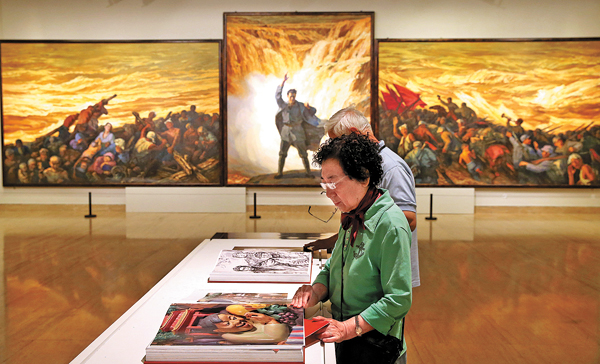
 |
|
Visitors thumb through the catalog of NAMOC's collections at the exhibition. |
He adds that as a national art museum NAMOC is responsible for serving the public's diversified art interests.
"It was quite natural that in the 1980s, museums helped promote art and served artists."
He says artists came from all corners of the country, enduring difficult rides on hard-seat trains for days, just to see an exhibition at NAMOC.
"Their excitement was unparalleled when seeing paintings of the Barbizon School, abstract art from the Museum of Fine Arts, Boston, and works of Andy Warhol, Picasso and Rodin," he says.
Now people enjoy art via varied channels and artists often travel abroad. Meanwhile, there has been a boom in building art museums across the country. Fan says he has visited many of them, which are well designed and feature modern and creative works.
"But there is often no audience and it's a total waste of resources. So I often ponder the question, how can today's art museums better cater to the audience?"
The answer may lie in the design of NAMOC's new venue, near the Bird's Nest, or Beijing National Stadium.
"The museum no longer centers on exhibitions. It will have a collection and preservation system, provide digital art information, offer public services such as a library and art education programs," Fan says.
"It will act like 'a spring rain that waters things in silence', that is, to touch upon people's hearts and souls and transmit culture."
 |
|
Refugees, 200/1202 cm, ink and water, by Jiang Zhaohe in 1943, is one of the classics of 20th century Chinese painting and displayed at Along with the Times exhibition in the National Art Museum of China. |